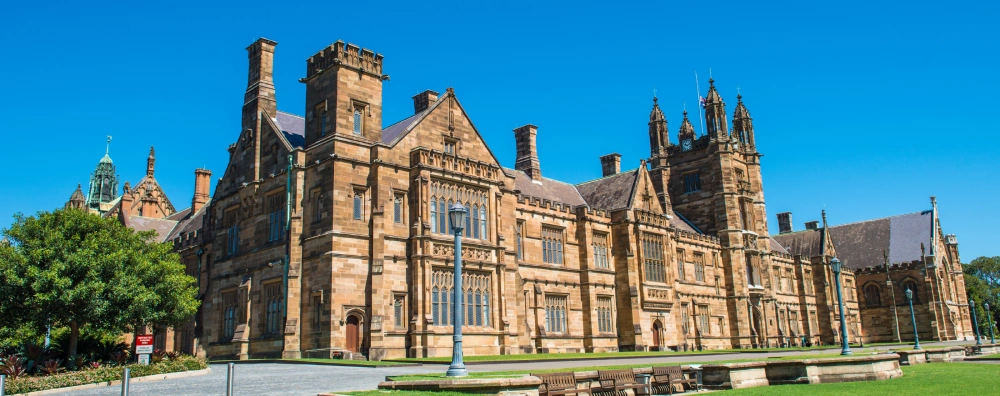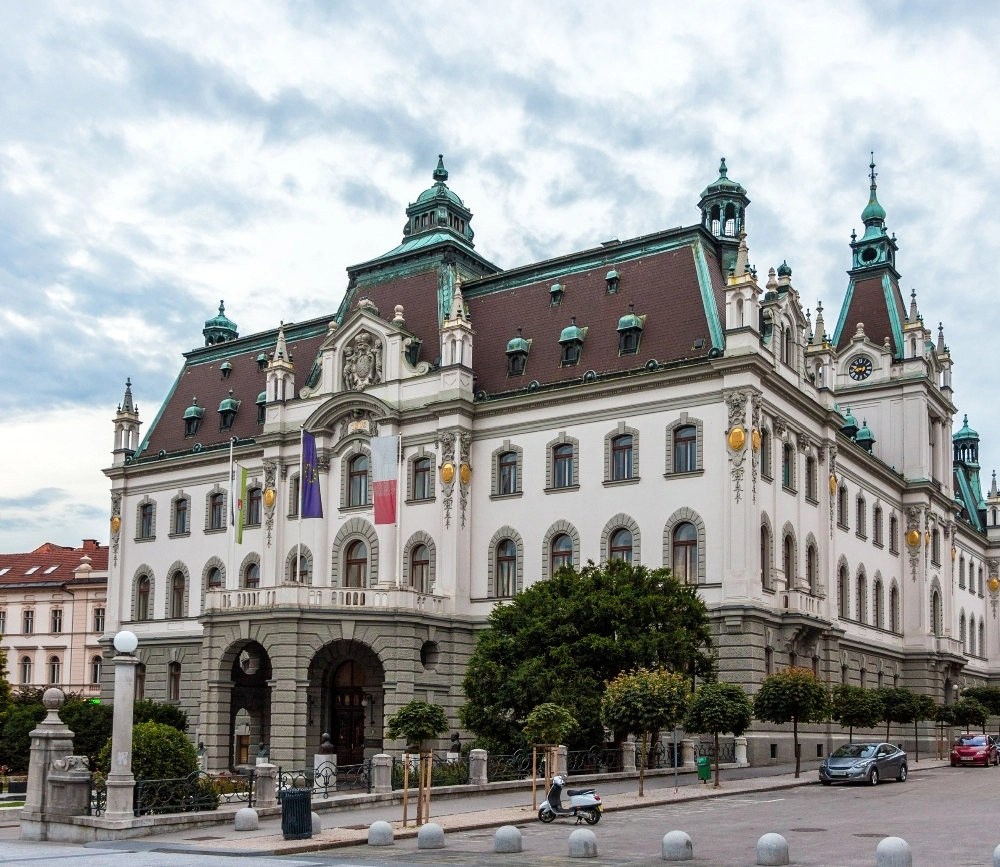Study in
Slovenia
Study in
Slovania
A Rising European Study Destination with Endless Possibilities
Slovenia, a Central European country and member of the European Union (EU), the European Economic Area (EEA), and the Schengen Area, is rapidly gaining popularity among international students seeking high-quality, affordable, and culturally rich education in Europe. Bordered by Italy, Austria, Hungary, and Croatia, Slovenia offers the perfect blend of Western European standards and Eastern European affordability.
This peaceful, green country is renowned for its stunning natural beauty, featuring the Julian Alps, pristine lakes, and vibrant cities such as Ljubljana and Maribor. With a strong and steady economy supported by industries such as automotive, pharmaceuticals, information technology, tourism, and sustainable energy, Slovenia also faces a growing demand for skilled professionals in the healthcare, engineering, and tech sectors. This opens up promising career pathways for international students after graduation.
Why Study in Slovenia?
Slovenia's education system is rooted in European standards and values, offering internationally recognised degrees and access to global research networks. Studying in Slovenia is not only affordable but also academically enriching, thanks to its strong emphasis on research, innovation, and student-centred learning.
Many universities offer English-taught programs at undergraduate, postgraduate, and doctoral levels. With affordable tuition fees and living expenses, Slovenia presents a cost-effective yet high-quality alternative to more expensive Western European countries.
Students benefit from a multicultural environment, EU mobility opportunities (such as Erasmus+), and a high standard of living. Moreover, the country's location makes travel across Europe easy and economical.
Study in Slovenia for Indian Students
Slovenia is becoming an attractive destination for Indian students due to its welcoming attitude, globally recognised degrees, and affordability. Indian students can choose their studies from a wide range of courses, including science, technology, engineering, business, and health sciences.
Several public and private universities offer a range of support services, including student housing, mentorship programs, visa assistance, and language support. Indian students in Slovenia can work part-time during their studies and apply for temporary residence permits after graduation to pursue employment opportunities.
Study Abroad in Slovenia: Higher Education System
Slovenia's higher education is divided into:
- Universities (research-focused, offering a full range of degrees)
- Faculties and Academies (specialised institutions under universities)
- Independent Higher Education Institutions (mainly for professional degrees)
Most programs follow the Bologna Process and use the ECTS (European Credit Transfer System), ensuring compatibility with other European qualifications. Degrees from Slovenian institutions are widely accepted across the EU and beyond.
Study in Slovenia for International Students' Requirements
Slovenia's higher education is divided into:
- A recognised secondary school certificate or bachelor's degree (as per program level)
- Proof of English or Slovenian language proficiency (depending on the course)
- Transcripts, Resume, statement of purpose, and recommendation letters
- Valid passport and identification
- Proof of financial means to support living expenses
Applicants may also be required to pass an entrance exam or undergo an interview, depending on the university and the field of study.

Study in Slovenia Without IELTS
Many universities in Slovenia accept alternative proof of English proficiency. Students who have completed their previous education in English or come from English-speaking backgrounds may be exempt from IELTS. Always check specific university requirements.
Study in Slovenia for Indian Students
Nursing is a rapidly growing profession in Slovenia, with a steadily increasing demand for trained healthcare workers. Some institutions offer nursing programs in English, particularly at the postgraduate level. For practical training and clinical work, knowledge of Slovenian is beneficial and sometimes mandatory.

Study Computer Science in Slovenia in English
Slovenia offers excellent computer science and IT-related courses in English. These include bachelor's and master's programs covering AI, data science, software development, and cybersecurity. Graduates have the opportunity to work in Slovenia's evolving tech sector or across Europe.
Study Master's in Slovenia
Master's programs in Slovenia typically last 1 to 2 years and focus on academic or professional specialisation. English-taught programs are available in diverse fields like economics, environmental sciences, IT, international relations, and engineering.
Master's students benefit from research opportunities, participation in EU projects, and mobility through the Erasmus+ program. After graduation, they can apply for job-seeking residence permits.
Study Master's in Slovenia
Master's programs in Slovenia typically last 1 to 2 years and focus on academic or professional specialisation. English-taught programs are available in diverse fields like economics, environmental sciences, IT, international relations, and engineering.
Master's students benefit from research opportunities, participation in EU projects, and mobility through the Erasmus+ program. After graduation, they can apply for job-seeking residence permits.
How Much Does It Cost to Study in Slovenia?
Tuition fees in Slovenia are relatively low compared to other EU countries:
- Public universities: EUR 2,000 to 5,000/year for non-EU students
- Private institutions: EUR 3,000 to 10,000/year
Living costs range from EUR 400 to EUR 700 per month, covering accommodation, transport, and food. Student discounts are widely available for meals, public transport, and cultural events.
How to Get PR in Slovenia After Studying
After completing their studies, students can apply for a temporary residence permit to stay and seek employment. Upon securing a job, they can apply for a work and residence permit. A continuous legal stay of five years in Slovenia makes an individual eligible to apply for permanent residency under certain conditions.
How Much Does It Cost to Study in Slovenia?
Tuition fees in Slovenia are relatively low compared to other EU countries:
- Public universities: EUR 2,000 to 5,000/year for non-EU students
- Private institutions: EUR 3,000 to 10,000/year
Living costs range from EUR 400 to EUR 700 per month, covering accommodation, transport, and food. Student discounts are widely available for meals, public transport, and cultural events.
How to Get PR in Slovenia After Studying
After completing their studies, students can apply for a temporary residence permit to stay and seek employment. Upon securing a job, they can apply for a work and residence permit. A continuous legal stay of five years in Slovenia makes an individual eligible to apply for permanent residency under certain conditions.
Slovenia Study Abroad Agency in India
KCR CONSULTANTS, a trusted study abroad consultancy, offers comprehensive services for Indian students planning to study in Slovenia. From selecting the right university and course to assisting with visa documentation and post-arrival services, we support you every step of the way.
Study in Slovenia Consultants
Working with experienced consultants like KCR CONSULTANTS ensures a smoother application process. We help you understand course requirements, prepare documents, secure scholarships, and guide you on settling in Slovenia successfully.
Student Visa for Slovenia: Process and Requirements
To study in Slovenia, non-EU students must apply for a residence permit specifically to pursue their studies. The process includes:
- Admission from a recognised institution in Slovenia
- Completed application form and a valid passport
- Proof of accommodation in Slovenia
- Evidence of sufficient financial means (approx. EUR 5,000/year)
- Health insurance coverage
- Criminal record certificate (from home country)
- Visa fee payment
Applications are usually submitted to the Slovenian embassy or consulate in the applicant's country. Visa processing takes 4–8 weeks.
Once in Slovenia, students must register their residence at the local administrative unit.
Conclusion
Studying in Slovenia provides a life-changing experience through its blend of academic excellence, affordability, and European lifestyle. With its welcoming atmosphere, English-taught programs, and access to EU job markets, Slovenia is the perfect destination for Indian and international students.
Whether your goal is to pursue nursing, IT, engineering, or business, Slovenia opens doors to global opportunities. Partner with KCR CONSULTANTS to make your study abroad journey in Slovenia smooth, successful, and secure.
We are here to help you!
Open from 8am - 8pm Monday - SATURDAY
Fill out the form below to receive expert advice and guidance.

